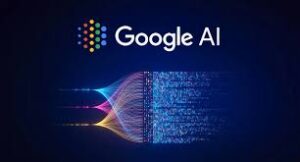
Google AI: Revolutionizing the Future of Technology
Introduction
In recent years, artificial intelligence (AI) has rapidly transformed the landscape of technology. Among the leaders in AI development is Google, a company that is now integrating AI into every facet of its operations and products. From improving user experience in search results to shaping future innovations, Google AI is at the forefront of this technological revolution. In this article, we explore how Google’s AI technology is changing industries, enhancing daily life, and what the future holds for this remarkable innovation.
The Rise of Google AI
Google has been working on AI for over a decade, starting with simple projects like Google Translate, which used machine learning to improve translations across languages. Today, Google’s AI capabilities are far more advanced. With AI-powered products such as Google Assistant, Google Search, and Google Cloud, the company has shown its commitment to leveraging AI to solve real-world problems.
Google’s AI algorithms are now used in a variety of applications. They are at the core of its search engine, where they help refine results based on personal search history and preferences, making the search experience smarter and more intuitive.
Applications in Various Sectors
- Healthcare
Google’s AI technologies are making significant strides in the healthcare sector. Through its subsidiary, Verily, Google is utilizing AI to aid in medical research and diagnostics. AI is being used to analyze medical images and detect early signs of diseases such as cancer, helping doctors make quicker and more accurate decisions. Moreover, AI algorithms are working to predict disease outbreaks, making public health responses more efficient. - Retail and E-commerce
In the retail sector, Google AI is reshaping customer experiences. From personalized shopping recommendations to optimized pricing strategies, AI is being used to predict customer behavior and deliver tailored shopping experiences. Google’s AI is also revolutionizing supply chain management by predicting demand and optimizing inventory. - Autonomous Vehicles
One of the most ambitious applications of Google’s AI is in the autonomous vehicle industry. Through its subsidiary Waymo, Google has developed self-driving cars that use AI to interpret their surroundings, make decisions, and navigate complex traffic conditions. This AI technology has the potential to revolutionize transportation, reducing accidents and improving traffic efficiency. - Smart Cities
Google AI is also contributing to the development of smart cities. With the use of AI-powered sensors and data analytics, urban planning is becoming more efficient. Traffic patterns, energy consumption, and even waste management are all being optimized through AI, making cities more sustainable and livable.
Impact on Daily Life
Google’s AI has already started impacting our daily lives in ways we may not even realize. Google Assistant, for example, is becoming an integral part of many people’s lives, helping with tasks like setting reminders, answering questions, and controlling smart home devices. The voice recognition technology embedded in Google Assistant is powered by advanced AI algorithms that continue to improve with use.
Furthermore, AI is behind personalized recommendations on YouTube, Google Maps, and even Gmail, making our interactions with these services more streamlined and customized to our needs.
Challenges and Ethical Concerns
While Google’s AI innovations are impressive, they also bring challenges. One of the most pressing concerns is data privacy. AI relies on vast amounts of data to make accurate predictions, but this data can sometimes be personal and sensitive. Google has committed to ensuring user data is protected, but as AI continues to evolve, questions about privacy and security will become even more important.
Another ethical concern involves bias in AI algorithms. Since AI systems are trained on large datasets, there is a risk that these datasets can reflect existing biases.
Google is actively working to address these issues by improving the transparency and fairness of its AI systems.
The Future of Google AI
Looking ahead, the future of Google AI is incredibly promising. As AI becomes more integrated into various industries, it will continue to drive innovation. Google is also working on developing General AI, which could potentially perform any cognitive task that a human can, making it far more powerful and versatile.
In the near future, AI will likely continue to enhance user experiences, optimize business operations, and address global challenges. Whether it’s improving healthcare outcomes, enhancing transportation systems, or making our everyday lives easier, the possibilities with Google AI are endless.
Conclusion
Google AI is not just a trend—it is a transformative force in technology. From healthcare to autonomous vehicles, and smart cities to everyday tools like Google Assistant, AI is changing how we interact with the world. While there are challenges, the potential benefits far outweigh them. As Google continues to advance its AI technologies, the future looks brighter than ever, with AI making our world more efficient, intelligent, and interconnected.
- Google AI
• AI technology
• Artificial Intelligence
• Google Assistant
• AI in healthcare
• Autonomous vehicles
• Smart cities
• Google AI future